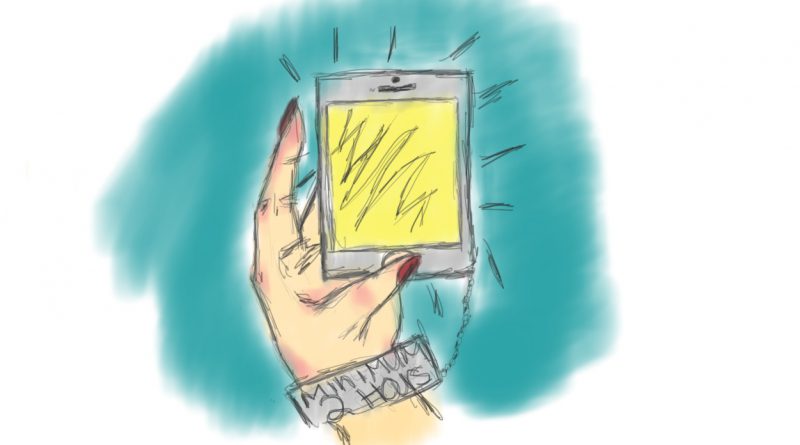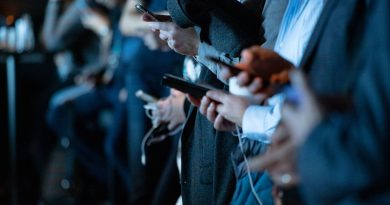Are We Being Consumed By Social Media?
Like most millennials, I use social media and generally agree it’s an important tool. Facebook, Instagram and Twitter have undoubtedly enriched my life. Tracking hashtags to catch the latest news, sharing photos with loved ones or participating in online discussions is what keeps me and the rest of the world using social platforms.
But how much time do we actually need to reap the benefits of social media? For most people, I’d estimate anywhere from 30-45 minutes per week—maybe even less.
According to GlobalWebIndex, the average internet user spends more than two hours on social media and messaging services per day, accounting for a third of their daily internet activities. Half of this time is dedicated to Facebook products alone.
We like to focus on all the positive things social media does for us and we rarely stop to consider its encroachment. The social media business depends on this laxness; massive media monopolies need us to tap, like and swipe their products without questioning how our attention is affected. So, why do we give our limited time to these platforms? And how did we become so deeply invested in social media?
The answer is surprisingly simple. To keep us hooked, tech developers prey on psychological vulnerabilities that bolster compulsive habits.
According to Tristan Harris, a former design ethicist at Google, most social media companies link user actions with a variable reward, such as the like button, to increase addictiveness.
When we open our phones, we are rewarded with notifications. When we click on these notifications, we are once again rewarded with likes, comments and messages. Variable rewards are effective because they use intermittent reinforcement, a behavioral training regimen where a prize isn’t administered every time the desired response is performed (like a slot machine). Social media companies are literally training us to obsess over their platforms. Harris says we now check our phones, on average, 150 times a day.
Autoplay and never-ending newsfeeds also keep us consuming content after we’ve had our daily fill. In a recent study, Cornell professor Brian Wansink tricked his subjects into overeating soup with a bowl that automatically refilled as they ate. The individuals who were given the bottomless bowl consumed 73% more calories than those with normal bowls. Tech developers employ this same concept. Take an infinite browsing experience and turn it into a continuous flow.
Concerned yet? If not, you should be. Variable rewards and auto-refilling are just two techniques meant to steal our time, but thousands more exist. Entire bookshelves have been dedicated to such tactics.
Unless the public sways, media platforms will continue to exploit basic human impulses. So, let’s switch off our social media notifications, or better yet, delete our mobile apps. Let’s create strict internet schedules and stick by them. There is little to lose and so much to gain when we take control of our social media activity. Our time is valuable and we should protect it with the same tenacity and rigor as other digital rights.




